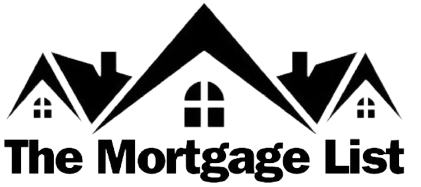Introduction of Fixed-Rate Mortgages
Fixed-rate mortgages are among the most common types of home loans, offering stability and predictability to borrowers. In this comprehensive guide, we will delve deep into the intricacies of fixed-rate mortgages, exploring how they work, their advantages and disadvantages, eligibility criteria, and tips for choosing the right fixed-rate mortgage for your needs.
What is a Fixed-Rate Mortgage?
An interest rate that stays the same for the duration of the loan is known as a fixed-rate mortgage.. This means that your monthly mortgage payments remain unchanged, providing predictability and peace of mind to borrowers. Unlike adjustable-rate mortgages (ARMs), which are subject to fluctuations in interest rates, fixed-rate mortgages offer stability and protection against rising interest rates.
How Fixed-Rate Mortgages Work
When you take out a fixed-rate mortgage, your lender will determine the interest rate based on various factors, including prevailing market rates, your creditworthiness, and the term of the loan. Once the interest rate is set, it remains fixed for the duration of the loan, typically ranging from 15 to 30 years.
Each month, you will make a fixed payment consisting of both principal and interest. While the total amount of your monthly payment remains constant, the proportion of principal and interest may vary over time, with more of your payment going towards interest in the early years of the loan and gradually shifting towards principal as you pay down the balance.

Advantages of Fixed-Rate Mortgages
The certainty that fixed-rate mortgages provide is one of its main benefits. With a fixed monthly payment, borrowers can budget more effectively and plan for the long term without worrying about sudden increases in housing costs due to rising interest rates.
Fixed-rate mortgages also provide stability in an uncertain economic environment. Even if market interest rates rise, your mortgage payment remains unchanged, offering protection against inflation and ensuring that your housing costs remain affordable.
Additionally, fixed-rate mortgages are relatively straightforward and easy to understand, making them an attractive option for first-time homebuyers or those who prefer simplicity and peace of mind.
Disadvantages of Fixed-Rate Mortgages
While fixed-rate mortgages offer stability and predictability, they may not always be the most cost-effective option, especially if prevailing interest rates are high at the time you take out the loan. In such cases, borrowers may end up paying more in interest over the life of the loan compared to adjustable-rate mortgages with lower initial rates.
Fixed-rate mortgages also lack the flexibility of adjustable-rate mortgages, which may offer lower initial payments and the potential for savings if interest rates decline in the future. Additionally, if you decide to refinance your fixed-rate mortgage to take advantage of lower rates, you may incur closing costs and fees, reducing the potential savings.
Eligibility Criteria for Fixed-Rate Mortgages
To qualify for a fixed-rate mortgage, lenders typically consider factors such as your credit score, income, employment history, and debt-to-income ratio. A higher credit score and a stable income stream can improve your chances of qualifying for a favorable interest rate and loan terms.
Additionally, lenders may require a down payment, usually ranging from 3% to 20% of the home’s purchase price, depending on the type of loan and your creditworthiness. A larger down payment can lower your monthly payment and reduce the amount of interest you pay over time.

Choosing the Right Fixed-Rate Mortgage
When selecting a fixed-rate mortgage, it’s essential to consider factors such as the term of the loan, interest rate, closing costs, and repayment options. A longer loan term, like 30 years, results in lower monthly payments but higher overall interest expenses over the course of the loan. A shorter loan term, like 15 years, usually gives a lower interest rate but higher monthly payments.
Comparing offers from multiple lenders can help you find the best deal and save thousands of dollars over the life of your mortgage. Online mortgage comparison tools and calculators can assist you in evaluating different loan options and estimating your monthly payments based on various factors.
Conclusion
Fixed-rate mortgages provide stability, predictability, and peace of mind to borrowers, making them a popular choice for homeowners seeking long-term financing. By understanding how fixed-rate mortgages work, their advantages and disadvantages, eligibility criteria, and tips for choosing the right loan, you can make informed decisions that align with your financial goals and circumstances.

FAQs (Frequently Asked Questions)
- Can I pay off my fixed-rate mortgage early?
- Yes, you can pay off your fixed-rate mortgage early without incurring prepayment penalties in most cases. However, it’s essential to check your loan agreement for any restrictions or fees associated with early repayment.
- Are fixed-rate mortgages better than adjustable-rate mortgages?
- The choice between fixed-rate and adjustable-rate mortgages depends on your financial situation, risk tolerance, and outlook on interest rates. Fixed-rate mortgages offer stability and predictability, while adjustable-rate mortgages may offer lower initial payments and the potential for savings if interest rates decrease.
- Can I refinance my fixed-rate mortgage to a lower interest rate?
- Yes, you can refinance your fixed-rate mortgage to take advantage of lower interest rates and potentially reduce your monthly payments. However, it’s essential to weigh the costs and benefits of refinancing, including closing costs, fees, and the remaining term of your loan.
- What happens if interest rates rise after I take out a fixed-rate mortgage?
- If interest rates rise after you take out a fixed-rate mortgage, your monthly payment remains unchanged for the duration of the loan. While rising interest rates may affect the affordability of future home purchases or refinancing options, your existing mortgage payment remains unaffected.
- How do I qualify for the best interest rate on a fixed-rate mortgage?
- To qualify for the best interest rate on a fixed-rate mortgage, focus on improving your credit score, maintaining a stable income and employment history, and reducing your debt-to-income ratio. Shopping around and comparing offers from multiple lenders can also help you secure a competitive interest rate.
Read More:>
